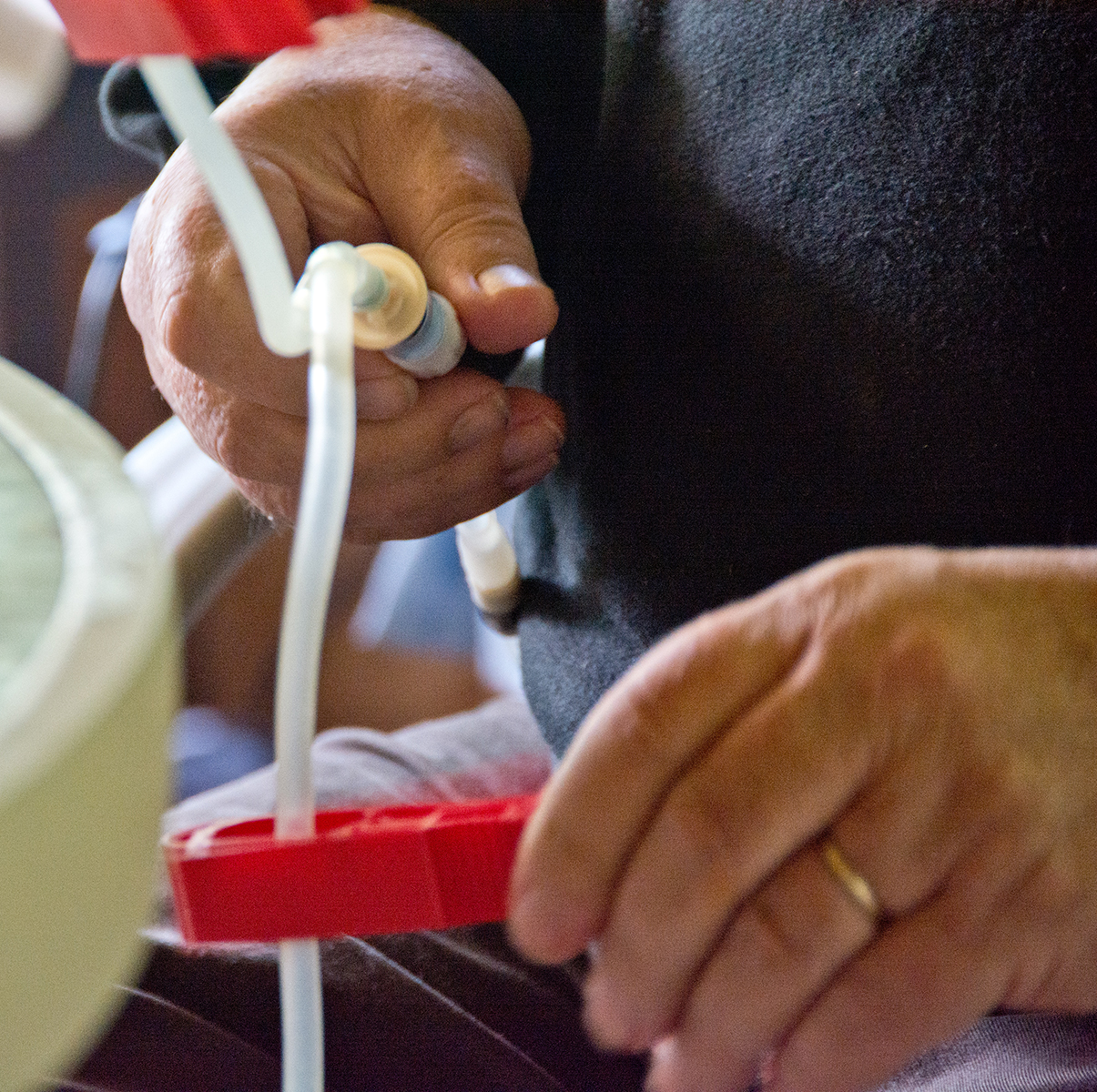Did you know that of the 30 million American adults estimated to have kidney disease, most don’t know they have it? In fact, many people could lose up to 90 percent of their kidney function before they ever report symptoms.
Our kidneys play a critical role in keeping our bodies functioning properly and loss of their function is life-threatening. The kidneys cleanse the blood of toxins, moderate the amount of fluids in the body, help keep blood pressure under control and assist in the production of red blood cells. Kidney failure results from damage to the kidneys over an extended period of time.
Once kidney function is lost, dialysis or a kidney transplant will be needed to stay alive. So, it’s vitally important to understand your risk before your kidneys are in danger.

Anyone can get kidney disease at any age, however, certain demographics and health conditions have increased risk. People age 60 or older have a higher likelihood of developing kidney disease than younger people because they are more prone to age-related conditions that can damage the kidneys such high blood pressure, diabetes, untreated urinary tract infections, and renovascular disease.
The other most common risk factors for kidney disease include cardiovascular diseases, prolonged use of certain medications such as NSAIDS, aspirin, antibiotics and herbal preparations that are toxic to the kidneys. Although, it is rare, exposure to certain contrast dyes used during MRIs, CT scans and angiograms has also been linked to two forms of kidney disease: contrast induced nephropathy (CIN) and nephrogenic systemic fibrosis (NSF). Although, the risk for developing either condition is less than 5 percent, the likelihood increases with the number of kidney disease risk factors already present.
The symptoms of kidney disease can include:
- high blood pressure
- changes in the amount and frequency of urination
- blood in the urine
- swollen legs and ankles
- pain in the kidney area
- tiredness
- loss of appetite
- difficulty sleeping
- headaches
- lack of concentration
- itching
- shortness of breath
- nausea and vomiting
- bad breath and a metallic taste in the mouth.
What can you do?
If kidney disease is found and treated early, its progression can be slowed down or even prevented from getting worse. If you suspect you have developed kidney disease, there are two simple tests that can be performed by doctors. A urine test called ACR (albumin-to-creatinine ratio) tests for protein in the urine. The presence of protein in the urine could mean that the kidneys are not adequately filtering the blood. Three positive urine tests over three months could be an indication of kidney disease. The second test is a blood test to determine how well the kidneys are working. The GFR (glomerular filtration rate) test looks for the presence of a waste product called creatinine, which comes from muscle tissue. Damaged kidneys have a difficult time filtering creatinine from the blood. The rate is paired with other factors to determine a rate for how well the kidneys are functioning.
If you’re experiencing kidney disease symptoms, consult your doctor and find out more about your options for diagnosis.


